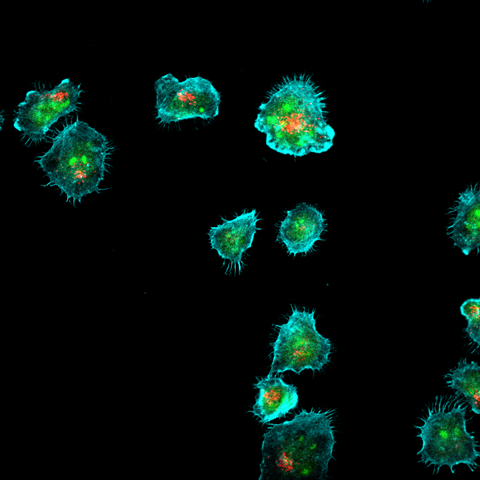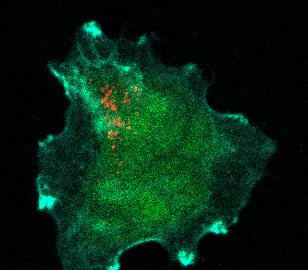Our immune system deploys specialized ‘killers’ to tackle viruses or tumor cells. As it turns out, the cellular lipid metabolism plays a key role in controlling these lethal, but essential tasks.
The immune system’s anti-aircraft missiles — that would be quite an adequate description of natural killer (NK) and T-cells. Both contain cytotoxic granules; packages carrying toxic payloads that can deliver lethal blows to external pathogens like viruses, but also to ‘domestic’ threats like tumor cells. Controlling these killers is a delicate task, as they should be engaged quickly and decisively without causing collateral damage to healthy cells and tissues. The detailed mechanism behind this system are still not fully understood.

In Science Immunology, researchers from Austrian and German institutes and medical centers present new insights that point to the involvement of various lipids in controlling the launch of these lethal payloads. Using a CRISPR-based genetic screening approach, they found a surprising hit in a set of genes that are part of the cellular lipid metabolism, but that apparently are also key players in the release of the cytotoxic granules. Specific lipids guide proteins to the right location in the NK and T-cells to ensure the right targets are hit.
These findings not only deepen our understanding of the way the immune system functions, they also shed new light on various diseases, such as a number of rare nerve diseases and hereditary immune disorders. “By systematically exploring genetic pathways and combining functional genomics with mechanistic follow-up, we have uncovered a new group of genes that control how T and NK cells function and kill both virus-infected cells or tumor cells,” says co-first author Artem Kalinichenko in an accompanying press release.
A. Kalinichenko, J. Heumer, et al., Protein palmitoylation and sphingolipid metabolism control regulated exocytosis in cytotoxic lymphocytes, Science Immunology (2025), doi:10.1126/sciimmunol.ado3825













Nog geen opmerkingen